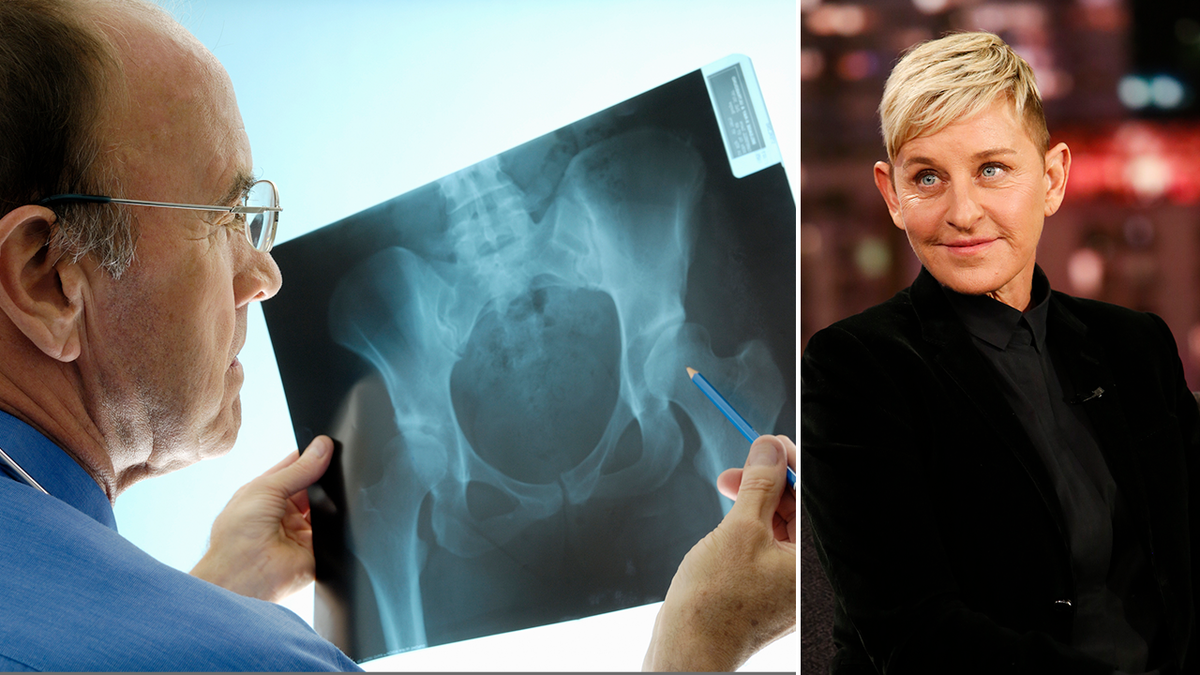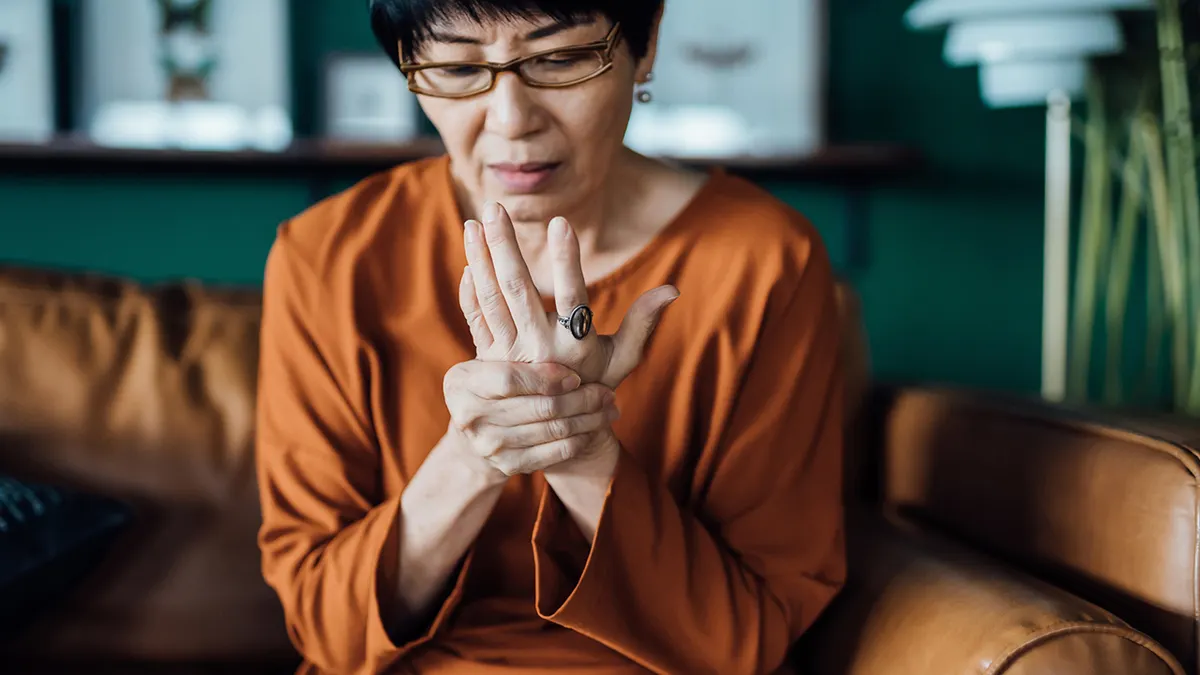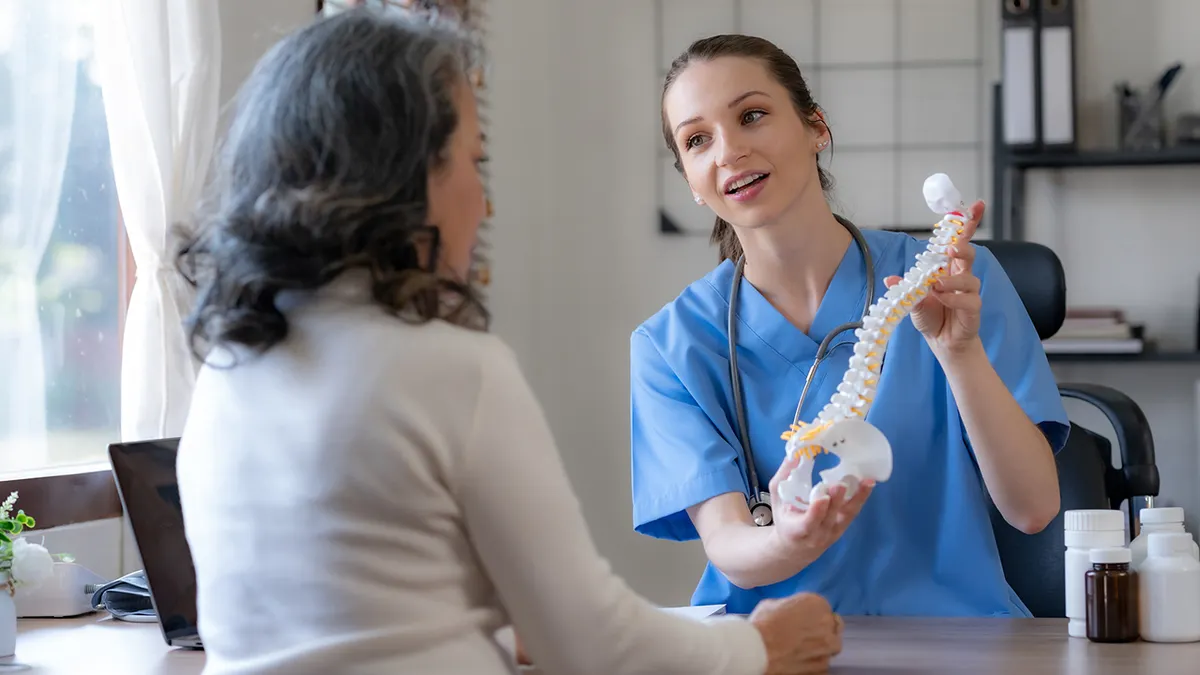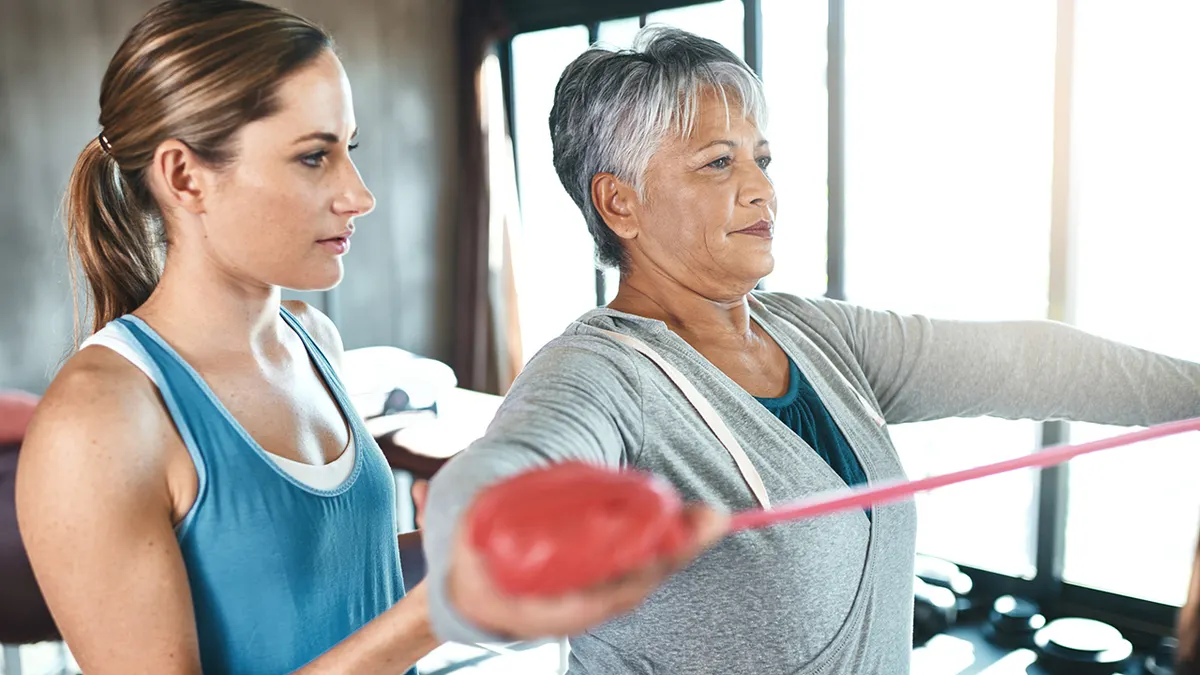

Longtime talk show host Ellen DeGeneres announced last week that she has been diagnosed with osteoporosis, as well as OCD (obsessive-compulsive disorder) and ADHD (attention-deficit/hyperactivity disorder).
During her final Netflix special "For Your Consideration," DeGeneres, 66, opened up about her triple diagnosis, noting that she took a bone density test recommended by her doctor and learned she had "full-on osteoporosis."
"I don’t even know how I’m standing up right now. I’m like a human sandcastle. I could disintegrate in the shower," she told the audience.
ELLEN DEGENERES REVEALS 3 HEALTH DIAGNOSES AFTER ‘EXCRUCIATING PAIN’: ‘I COULD DISINTEGRATE IN THE SHOWER’
DeGeneres went on to admit that "it's hard to be honest about aging and seem cool."

"I had excruciating pain one day and I thought I tore a ligament or something, and I got an MRI, and they said, ‘No, it’s just arthritis.’ I said, ‘How did I get that?’ And he said, ‘Oh it just happens at your age,'" she said.
Dr. Gbolahan Okubadejo, board-certified spine surgeon at The Institute for Comprehensive Spine Care in New Jersey, weighed in on DeGeneres' diagnosis.
"Ellen still appears to have great posture and appears to be very active and healthy," he told Fox News Digital.
SOY MILK COULD REDUCE RISK FACTORS FOR HEART DISEASE, RESEARCH SHOWS
"Depending on the degree of osteoporosis she was diagnosed with, she has a great chance to have a normal life," he went on.
"It's important for her to be well-educated about the treatments and lifestyle modifications recommended by her doctor, and be a great patient by following those instructions."
Osteoporosis is a "bone disease that develops when bone mineral density and bone mass decreases, or when the structure and strength of bone changes," according to the National Institute of Arthritis and Musculoskeletal and Skin Diseases.
The disease can lead to a decrease in bone strength, which can increase the risk of broken bones.
"Osteoporosis occurs when the body loses too much bone mass or doesn't produce enough bone to maintain healthy density," Okubadejo said.
This causes the bone to become weak or brittle.
"Although certain populations are more vulnerable to osteoporosis, it’s often associated with aging, hormonal changes associated with age, lifestyle factors or mineral/vitamin deficiencies," added Okubadejo.

Osteoporosis can cause the bones to become so weak and brittle that a fall or even mild stress like coughing can cause a break, Mayo Clinic reported.
Nearly 20% of women aged 50 and older have osteoporosis, according to the Centers for Disease Control and Prevention (CDC).
Early-stage bone loss typically does not show any symptoms, according to Mayo Clinic.
Once bones are weakened, that can lead to back pain, loss of height, stooped posture and easy bone breakage.
TESTOSTERONE THERAPY COULD HELP BOOST WOMEN'S SEX DRIVE AS THEY AGE, EXPERTS SAY
Osteoporosis can occur in men and women alike, but Mayo Clinic specified that older white and Asian women who are past menopause have the highest risk.
Men and women with small body frames tend to be more susceptible, as they have "less bone mass to draw from as they age," the clinic noted.
The condition is also more likely to occur in people who have hormone imbalances, have undergone gastrointestinal surgery, have low calcium intake or experience disordered eating, according to the same source.

Those with a family history of osteoporosis may also face a higher risk.
People who have taken corticosteroid medicines for conditions like seizures, gastric reflux, cancer and transplant rejection are more susceptible, as are those with celiac disease, inflammatory bowel disease, kidney or liver disease, multiple myeloma and rheumatoid arthritis.
The condition can be diagnosed by a bone density test or DEXA scan, according to Okubadejo.
'FOR BETTER SLEEP, HOW CAN I REDUCE NIGHTTIME BATHROOM TRIPS?': ASK A DOCTOR
"Patients with osteoporosis have 'thin' bones, so are more vulnerable to suffering from fractures from falls or low-intensity trauma," Okubadejo told Fox News Digital.
"Some patients have back pain, while others may have subclinical 'microfractures' in the spine, with changes in posture causing them to appear kyphotic (stooped in the upper back)."
Osteoporosis can be caused by lifestyle choices such as being sedentary, consuming excessive alcohol consumption and using tobacco.
For more Health articles, visit foxnews.com/health
"People who spend a lot of time sitting have a higher risk of osteoporosis than do those who are more active," Mayo Clinic reported.

Exercise is critical for prevention, according to Okubadejo, as bone density can be reinforced through regular strength training activities.
"It's also important to minimize environmental and lifestyle risk factors that weaken bone, such as smoking or excessive alcohol consumption," he added.
Good nutrition is also essential for promoting healthy bones, specifically calcium intake, experts advise.
TO SIGN UP FOR OUR HEALTH NEWSLETTER
Men and women between the ages of 18 and 50 need 1,000 milligrams of calcium per day, according to Mayo Clinic. That increases to 1,200 milligrams when women hit 50 and men reach 70.
Good sources of calcium include low-fat dairy products, leafy green vegetables, soy products like tofu, calcium-fortified cereals and orange juice.

Sufficient levels of vitamin D — which can be found in some foods like milk and fish, as well as sunlight — can boost the body’s ability to absorb calcium and improve bone health, according to the clinic.
DRINKING ALCOHOL IS LINKED TO SIX TYPES OF CANCER, EXPERTS SAY: ‘IT’S TOXIC'
Too much calcium, especially in supplements, can cause complications like kidney stones and heart disease, the same source warned.
Various medications can help treat osteoporosis by strengthening and protecting bone mass.
"In addition to vitamin D and calcium, other medications to treat osteoporosis include bisphosphonates, hormone therapy and selective estrogen receptor modulators," Okubadejo told Fox News Digital.
"These medications protect bone or help to build it back up, in an effort to maximize bone density and lower the risk of bone injury overall."
Fox News Digital reached out to DeGeneres for comment.
Fox News Digital’s Ashley Hume contributed to this report.


